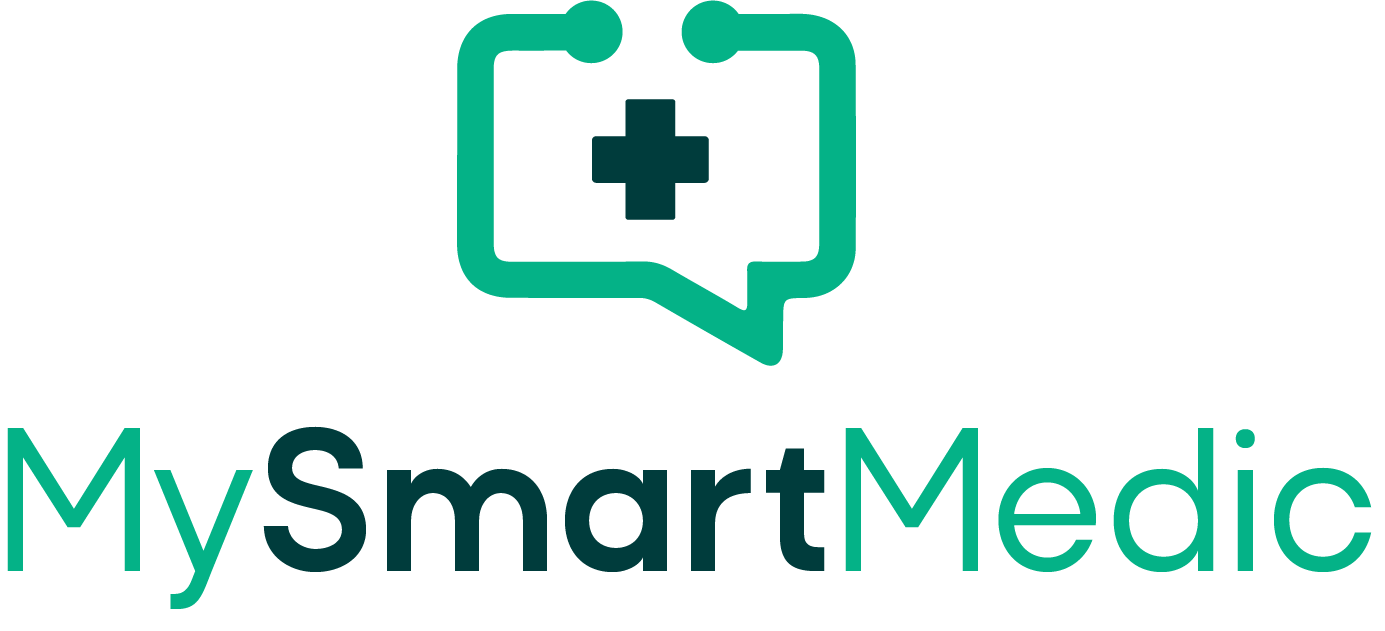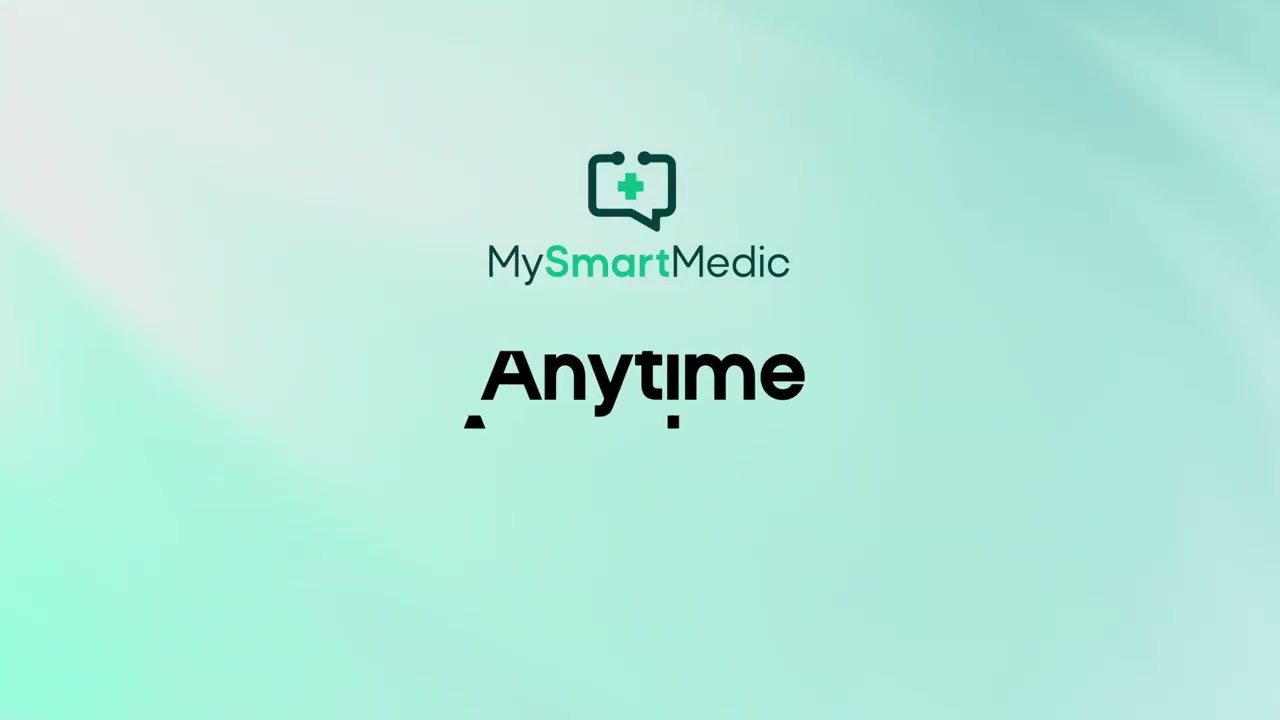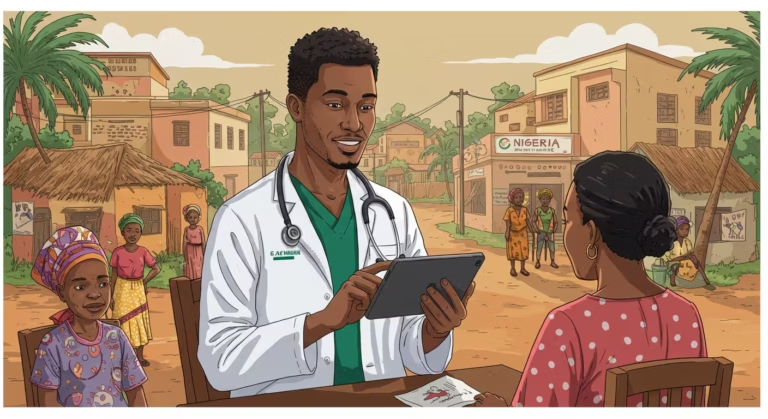Data Privacy & Telemedicine Laws in Nigeria (2025)
In this article, you will discover Nigeria’s telemedicine laws, data privacy rules, and security regulations. Stay compliant and protect patient data with our guide
These days, you don’t always have to enter a hospital to see a doctor. From your phone, you can now talk to a licensed doctor, and even get your drugs without leaving your house.
That is the power of telemedicine. But how protected are you when you use it?
Many Nigerians are becoming aware and inclined to digital healthcare. Hence, the government has set up proper rules and regulations to guide it. Such laws cover patient consent, data privacy, and online doctors consultations.
If you are offering healthcare online or even using it as a patient in Nigeria, you need to know the data privacy rules and telemedicine laws. It is not just about doing things legally. It is about protecting people’s health and private information.
Overview of Telemedicine Laws Legal Framework
In this section, we will break down the legal framework of the telemedicine laws in Nigeria and how you can stay on the right side of them.
Ever wonder who keeps watch when you chat with a doctor on your phone? In Nigeria, telemedicine laws and telemedicine regulations are regulated by three bodies.
NITDA (National Information Technology Development Agency) is the watchdog for tech and data. They control ICT policies in Nigeria and also put NDPR in place, so one’s details stay safe and protected online.
National Primary Health Care Development Agency ensures that primary healthcare services reach communities. NPHCDA provides access to primary health care for all Nigerians, especially those that are vulnerable.
The Federal Ministry of Health is responsible for the healthcare policies in Nigeria. FMOH ensures quality healthcare services for all Nigerians.
Key Telemedicine Laws Regulatory in Nigeria
1. NITDA’s Nigeria Data Protection Regulation (NDPR)
If you run a health service online in Nigeria, you must follow the Nigeria Data Protection Regulation, or NDPR. This rule came from NITDA. It protects people’s personal details, especially health records.
Before a doctor or online health platform collects patient data, they must get permission. This is called patient’s consent. No one is allowed to just collect or use someone’s health info without telling them why and how you will use it.
The NDPR also says that patient data must be stored in a safe way. It should not be shared with other people or companies unless the patient agrees.
If a clinic breaks this rule, NITDA can fine them. It is a serious law in Nigeria.
Some platforms like MySmartMedic follow this rule strictly. They make sure patient data is protected at every step.
If you offer telemedicine, NDPR is not optional. It is the law.
2. National Health Act & e‑Health Provisions
The National Health Act is one of the main telemedicine laws in Nigeria. Even though it came out before virtual care became common, the law still applies to online doctors and digital clinics.
If you are offering telemedicine, you must keep proper records. You must also protect patient information. The same rules that apply to hospitals apply to you too. You cannot say it is just an app.
Only licensed medical workers are allowed to treat patients. This includes doctors, nurses, and pharmacists. They must be registered with the proper council. This is part of the law.
The Ministry of Health has also shared plans to guide digital health in Nigeria. Recently, they released a new eHealth program to support virtual healthcare.
Every platform must follow these telemedicine regulations. Whether you run a mobile app or website, the law expects you to do things properly.
3. Pharmacy Council & Tele‑prescription Guidelines
Online healthcare does not stop at seeing a doctor. Many patients also need drugs. This is why prescriptions given online must follow Nigerian pharmacy laws.
The Pharmacy Council of Nigeria (PCN) is the body in charge. They guide how prescriptions should be written, shared, and filled when done online. This is part of the telemedicine laws in Nigeria.
First, any doctor giving e‑prescriptions must be licensed. The doctor must write the prescription clearly and include all the right details. The pharmacy that fills it must also be approved by PCN.
Patients should not receive medicine from unknown sources. Pharmacies must confirm the prescription before giving out drugs. This helps prevent fake or wrong drugs.
Telemedicine regulations now encourage digital prescriptions, but safety must come first. Platforms must keep records of every prescription they send. They must also protect that information under Nigeria’s data privacy law.
For more information on e-prescriptions, you can visit the Pharmacy Council of Nigeria.
4. Professional Code of Ethics
Even if a doctor sees patients online, the rules of medical ethics still apply. In Nigeria, every licensed health worker must follow a professional code of conduct. Telemedicine does not change that.
Doctors must be fully registered with the Medical and Dental Council of Nigeria (MDCN). They are not allowed to practise without a valid license. This includes online consultations. If a platform is using fake or unregistered doctors, it is breaking telemedicine laws.
Ethical rules also say a doctor must know their limits. If they cannot manage a case virtually, they must refer the patient to a hospital or in‑person specialist. Ignoring this is not just risky, it is against the rules.
Some platforms in Nigeria already follow these telemedicine regulations by vetting their doctors. That is what helps to build trust.
For more details, the Medical and Dental Council of Nigeria shares public information about licensure and ethical practice in Nigeria.
Data Privacy Law Requirements
When it comes to online healthcare, data privacy is no joke. In Nigeria, the main law that guides this is the Nigeria Data Protection Regulation (NDPR). This law makes sure that patient information is handled with care.
Under this data privacy law, telemedicine platforms must collect only what is needed. They must also explain why they are collecting it.
Patients have the right to know how their data is used, and they must give clear consent before anything is done with it.
Patients also have full control over their records. They can ask to see their health data. If there is a mistake, they can ask for correction. If they want their data deleted, the platform must respond within a short time. These are rights protected by law.
If there is a breach, for example, if someone hacks a platform and steals patient info, NDPR says it must be reported. The provider has 72 hours to notify the National Information Technology Development Agency (NITDA).
Failure to follow these telemedicine laws can lead to heavy fines. Some platforms have paid millions in penalties due to poor data handling.
You can find more about NDPR directly from the NITDA website.
Security Standards for Telemedicine Platforms
When it comes to virtual healthcare, one thing that must never be taken lightly is security. Patients are now sharing sensitive health details over the internet. Therefore, telemedicine platforms must put proper protection in place. That is where telemedicine data security comes in.
- Encryption and Secure Storage
To begin with, all patient information must be locked down using end-to-end encryption. This means only the doctor and the patient can see what is shared. Any platform still using unsecured systems is already putting people at risk.
Also, health records must be stored safely. That means using strong servers that cannot be easily hacked. These servers should either be in Nigeria or follow the rules under the country’s data privacy law. It is not okay to keep patient files on weak or unapproved systems.
- Access Controls and Authentication
Not everybody should have access to patient records. Platforms are expected to control who logs in and what they can see. Doctors and staff should use verified accounts and two-step login methods. The same goes for patients. They should have secure access to their own information.
Simple things like using strong passwords and alerting users of suspicious activity make a big difference.
- Audit Trails and Logging
Every time a patient’s file is opened or changed, there should be a record. These logs, often called audit trails, help providers know who did what and when. If a mistake or breach happens, the records make it easier to find out how.
Keeping track of activity on the platform also helps build trust. Patients know their data is not being accessed without reason.
- Third-Party Vetting
Most telemedicine platforms work with other companies to handle storage, payments, or video calls. These third-party services must also be secure. If your hosting company is not careful, your whole platform is exposed.
That is why part of telemedicine regulations now includes checking your partners. All third-party must meet the same safety standards.
For more info on global best practices, you can check out the WHO’s digital health guidelines.
Compliance Checklist for Telemedicine Providers
Running a telemedicine service in Nigeria comes with responsibility. You cannot just create an app and call it healthcare. If you are collecting patient details and giving medical advice online, there are laws and regulations you must follow. Here’s a basic checklist to guide you.
- Get Certified Under the NDPR
One thing every platform must sort out first is compliance with the NDPR. That is the main data privacy law we have in Nigeria. It controls how you collect, use, and protect people’s personal health details. If you do not have proper data handling measures in place, you are already breaking the rules. Certification is not optional. You need it.
- Update Your Privacy Policy
Many providers still use a generic privacy policy that does not even mention telemedicine. That is a problem. If you are offering virtual consultations, your privacy notice must reflect that. Patients should know what kind of information you collect during an online visit, how long it stays in your system, and who can see it.
Being clear helps avoid trouble and shows you take data protection seriously.
- Protect Patient Information
Let’s face it, Nigerian platforms are not always secure. Some do not even use proper encryption. If you are not careful, one attack or leak can ruin your business. Telemedicine data security is a big deal. Start by using strong passwords, firewalls, and safe cloud storage. Your system must also block unauthorised access.
This is not just about avoiding fines, it is about building trust with patients.
- Teach Your Staff the Right Way
Sometimes, the biggest threat is not hackers, it is people who work with you. Maybe a nurse sends records to the wrong number. Or a staff member saves files where anyone can open them. These are small errors, but they cause big wahala. That is why every team member handling patient info must be trained on data safety.
Even one short session per month can make a big difference.
Consequences of Non-Compliance
Let’s be honest, ignoring telemedicine laws in Nigeria comes with serious risks. You might think nobody is watching, but once your platform grows, the regulators will come knocking. And when they do, it won’t be funny.
- Fines and Government Sanctions
Under the NDPR, if you are found mishandling patient data, you can get hit with heavy fines. We are talking millions of naira depending on how big the breach is. Same goes for the National Health Act. If you are running an online clinic without proper licensing, or your records are not in order, you are setting yourself up for sanctions.
Some providers have had their businesses shut down. Others get dragged into court.
- Lawsuits and Legal Trouble
If a patient’s data gets leaked, do not be surprised when they take legal action. Nigerians are now more aware of their rights. Whether it is a case of medical malpractice or a simple data mix-up, you can get sued.
And these lawsuits are not just for hospitals anymore. Even small startups or solo doctors doing tele-consults can get into trouble.
- Reputation Damage and Trust Issues
Here’s what many people do not realize, one data scandal can damage your name forever. Once patients lose trust in your platform, it is hard to win them back. Even if you fix the mistake, the gist would have already spread online. Twitter, blogs, WhatsApp, Nigerians will talk.
In healthcare, trust is everything. Without it, your business is finished.
How MySmartMedic Ensures Legal & Security Compliance
A lot of telemedicine platforms in Nigeria are still playing catch-up when it comes to compliance. But MySmartMedic is not one of them. From day one, the team built the service to meet legal standards and protect patient data—no shortcuts.
- Built on Bank-Grade Encryption and Clear Policies
Before anything else, the app was designed with privacy in mind. The backend uses bank-level encryption to protect every message, prescription, and lab result shared on the platform. Even if someone tried to hack in, the data would not make sense without the encryption key.
The platform also follows GDPR-style policies. Hence, your medical information is not just floating around or stored carelessly.
- Secure Data Centres Certified Under NDPR
All patient records on MySmartMedic are stored in a certified data centre right here in Nigeria. That is important because Nigeria’s main data privacy law, NDPR, prefers local storage. It also makes access control easier.
No offshore servers, no grey areas. Everything is hosted under Nigerian rules.
- Quarterly Security Audits and Staff Training
One thing the team takes seriously is regular auditing. Every few months, they bring in external experts to check for any weak spots. If they find issues, they fix them fast.
But that is not all. Everyone who works at MySmartMedic, from the admin staff to doctors, goes through periodic training on how to keep patient data safe. Because one careless click can cause big trouble.
Future Developments in Telemedicine Law
The truth is, telemedicine in Nigeria is still growing, and so are the laws guiding it. What we have now is a good start, but there is more to come. The government, lawmakers, and tech players are all watching how things unfold.
- NDPR May Soon Cover AI-Driven Health Tools
With more platforms using AI to suggest diagnoses or treatment plans, the NDPR may need updates. Right now, it mostly focuses on data privacy and consent. But soon, it could include rules for how AI systems use sensitive health information.
If you are using a health chatbot or machine learning to review symptoms, you will have to stay alert for these updates.
- Proposed e-Health Bill in National Assembly
There’s talk at the National Assembly about a new e-Health bill. If passed, this law would make telemedicine regulations more specific. It could set clearer rules around the operations of virtual consultations.
No law has been passed yet, but discussions are ongoing. Health tech operators should pay attention. Once signed into law, compliance will no longer be optional.
- Cross-Border Telemedicine and ECOWAS Plans
Telemedicine does not stop at Nigeria’s borders. Some Nigerian doctors already consult with patients in Ghana, Sierra Leone, and other ECOWAS countries. But here’s the thing, there is no unified law yet for cross-border consultations in West Africa.
There are talks within ECOWAS to develop regional standards for digital health. This will affect how health data is shared across countries and what licenses are accepted across borders. So, if you are planning to scale your platform beyond Nigeria, now is the time to prepare.
Frequently Asked Questions (FAQs)
Do I need patient consent for text-based consultations?
Yes. Whether it’s a video call, voice note, or chat, you still need clear patient consent. Nigeria’s telemedicine laws and the NDPR treat all digital interactions as protected. So always get your patient’s permission before any consultation.
How long must I retain telemedicine records?
The National Health Act expects health records, digital or paper, to be kept for a minimum of ten years. That applies to virtual consultations too. Good record-keeping is part of compliance with telemedicine regulations.
Can I store patient data on international cloud services?
Technically yes, but you must follow Nigeria’s data privacy law. That means ensuring the cloud provider meets NDPR standards and that patient data stays secure. If the server is outside Nigeria, you may also need extra safeguards and disclosures.
Conclusion on Telemedicine Laws in Nigeria
As telemedicine continues to grow in Nigeria, following the right steps is not just about ticking boxes—it’s about protecting your patients and building trust.
Whether you are a doctor, startup founder, or health tech operator, staying in line with telemedicine laws, telemedicine regulations, and Nigeria’s data privacy law is no longer optional.
Platforms must also take telemedicine data security seriously. It is not enough to have a virtual consultation feature. Your platform must be safe, private, and legal.
Now is the time to review your setup. Are your privacy policies up to date? Is your data encrypted? Are your staff trained?
If you are unsure where to begin, go to MySmartMedic site today to get our free Telemedicine Compliance Checklist and make sure you are on track.
Stay compliant. Stay secure. Stay trusted.
